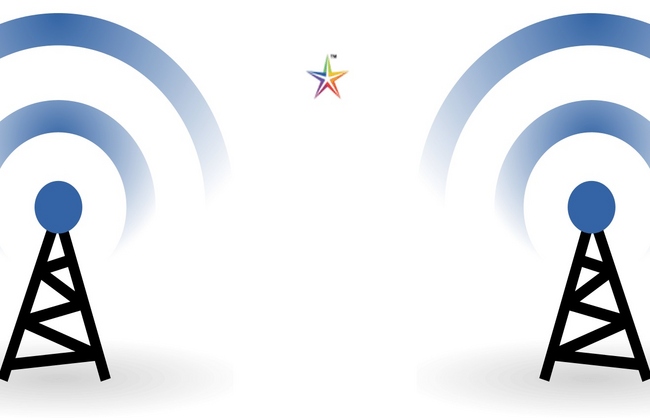No Remote Needed: BBC Develops a Mind-Control Headset for Your TV

For as long as science fiction has existed, we’ve dreamt of being able to harness the power of mind-control. This is becoming more reality than fiction these days. The number of fanciful possibilities based on this idea is infinite. Imagine driving with your mind, ordering pizza by concentrating, or playing a video game with nothing but your HTC Vive and thoughts. But one power you probably didn’t think of is changing the TV channel just by thinking. Couch potatoes, rejoice! BBC is developing a mind-control headset for your TV.
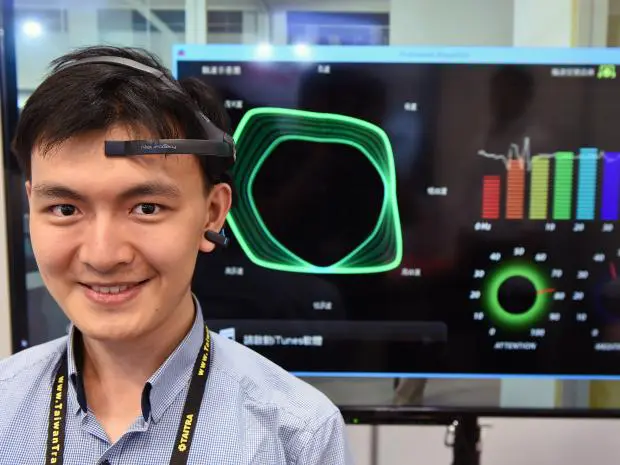
A Meeting of the Minds
The BBC debuted a prototype of their mind-control TV headset. It allows users to select a program to watch on the company’s iPlayer app, their on-demand platform. In collaboration with tech company This Place, BBC’s Digital, part of the company’s Design & Engineering division, developed the prototype. This division of the BBC investigates how the organization could possibly innovate with both new and emerging technologies.
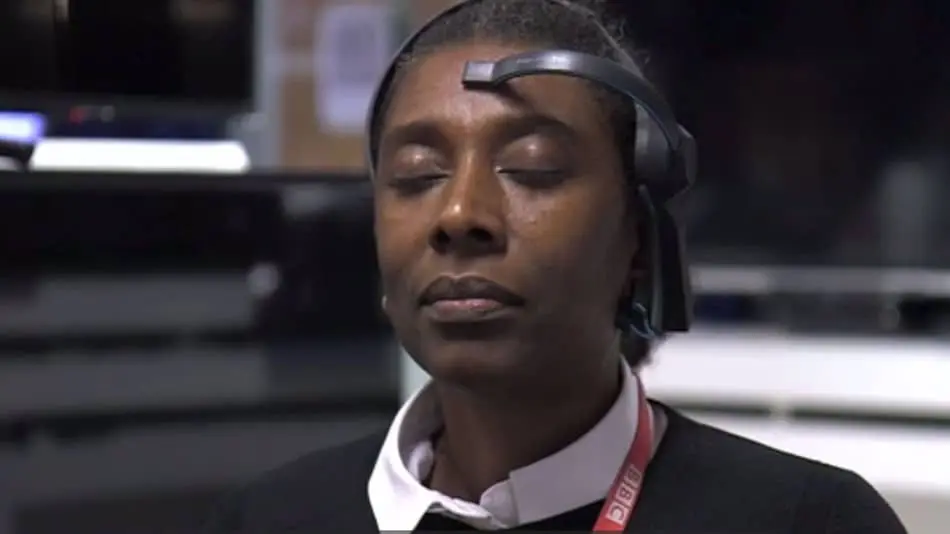
Dusan Hamlin, Founder and Chief Executive of This Place, explains his company’s interest in the project: “We’ve always been interested in the challenge of ‘smart’ TV interfaces. They can be extremely difficult to navigate with a remote control or even a second screen device.” This Place focuses on supporting brands to build a product or service for the digital economy.
“You can imagine a world where instead of having to get up from your sofa or reach for your remote, you just think ‘put BBC One on’ when you want to watch TV,” Cyrus Saihan, Head of Digital Partnerships at BBC, discusses the BBC’s vision for the idea.

Make a Remote Control out of Your Mind
The prototype utilizes a cheap electroencephalography (EEG) headset. As we’ve mentioned before, EEG is the most popular method to record brain signals for non-invasive brain-computer interfacing (BCI). EEG employs electrodes to pick up brain signals through the skull. A machine (in this case, the TV) then “responds” to the signals through an action.
EEG can prove to be an inaccurate and difficult method to use. It’s no small feat that BBC and This Place used it to make a remote-control out of the user’s mind. The prototype headset has two sensors; one that goes on your forehead, and one clipped to your ear. The headset works with an experimental iteration of BBC’s iPlayer app. It lets you choose between “concentration” and “meditation” for a control mechanism.
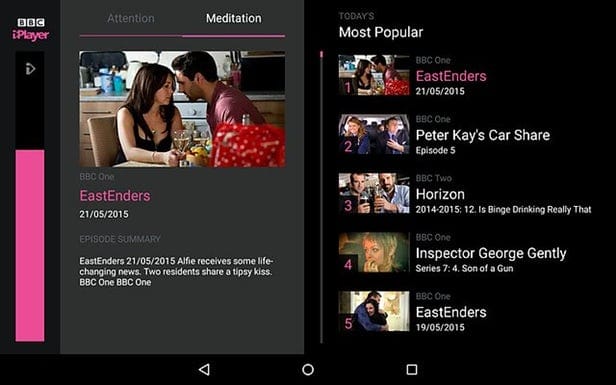
This particular version of the iPlayer displays a vertical pink bar on the left and five BBC shows on the right side of the screen, respectively. The bar resembles a “volume bar,” but it actually measures your concentration or relaxation. Each channel is highlighted for 10 seconds before starting at the first channel again. You have these ten seconds to focus and trigger a channel change. The TV will change the channel to the user’s choice when the concentration bar reaches a threshold.
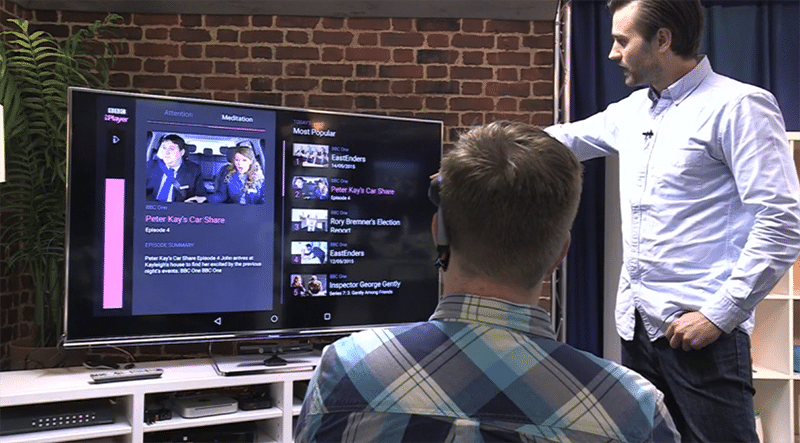
Thoughts for Turning on the Telly and More
“Our proof-of-concept is only an experiment and just a toe in the water, but it helps our initial understanding of how we might be able to control devices using our brainwaves in the years to come.” — Cyrus Saihan
“It’s important to stress that it’s very early days and while brainwave reading devices are constantly improving, their capabilities are still quite basic – the outputs on our very experimental app were limited to simple binary on/off instructions, for example.” While Cyrus Saihan tries to remain grounded, he can’t help but let his imagination run wild with the possibilities of this technology outside of the living room: “Imagine sitting in your car and thinking ‘I want to listen to Radio 4’ and hearing the radio station come on during your commute to work. Perhaps you might be able to just think ‘give me the latest news’ and in response get served up a personalized set of news headlines.”
Saihan also expressed the project’s goal was to inspire makers and technology enthusiasts to ask how else this technology could possibly be used. Saihan and company already see the potential impact this brain-computer interfacing technology could have for accessibility. It could provide a new way of interaction for people with disabilities. It could also spur the development for a new way of interfacing with everything in our everyday lives.

For now, the BBC considers making media content more accessible a huge win for a first step. The division responsible for this project is also currently working on controlling iPlayer by talking to your TV. Whatever the future holds, it looks to be hands-free.
Sources: New Atlas, BBC, The Telegraph, New Atlas



